Members of the Executive Team of the Frontiers Research Foundation contribute their time freely to the work of the Foundation. None of them are paid so all donations received directly benefit the programs sponsored in full.

Frontiers Foundation President & FPP Committee Member
Henry Markram, PhD
Henry co-founded Frontiers Foundation and Frontiers Media with the goal of accelerating science for healthy lives on a healthy planet.
Henry is a professor of neuroscience at the Swiss Federal Institute of Technology Lausanne (EPFL). He founded the EPFL’s Brain Mind Institute, the Swiss Blue Brain Project, and the Europe’s Human Brain Project.
In Lausanne, he runs a biology lab where the team of experimentalists study the design of the brain. Discoveries made include: how synapses learn by judging how well they are timed to transmit information in the brain, the Intense World Theory of Autism together with Kamila Markram; and as co-discoverer, a new paradigm for computing, called liquid computing. In Geneva, he runs the Blue Brain Project, which is building digital twins of the brain to allow simulation experiments on virtual brains running on supercomputers.
Henry and his team have published over 260 research articles, and he is one of the highest cited neuroscientists in the world. He and his team also used the Blue Brain’s AI technology to extract knowledge from 100s of thousands of articles and found the main reason why some people get a more severe form of COVID-19 is because of deficiencies in metabolizing glucose.
He has received numerous awards and honours, including the Bell Labs Claude Shannon Visionary Award and the International Hebb Award. More recently, he founded INAIT, an AI company aimed at developing a new generation AI that is based on the actual architecture and operating system of the brain.
He likes to say, “Our collective knowledge is far greater than any individual’s knowledge. We can harness the global brain to solve the most challenging problems.”
Henry & Kamila sponsor and align the programs initiated by the Frontiers Research Foundation and build relationships with donors that support the different programs.
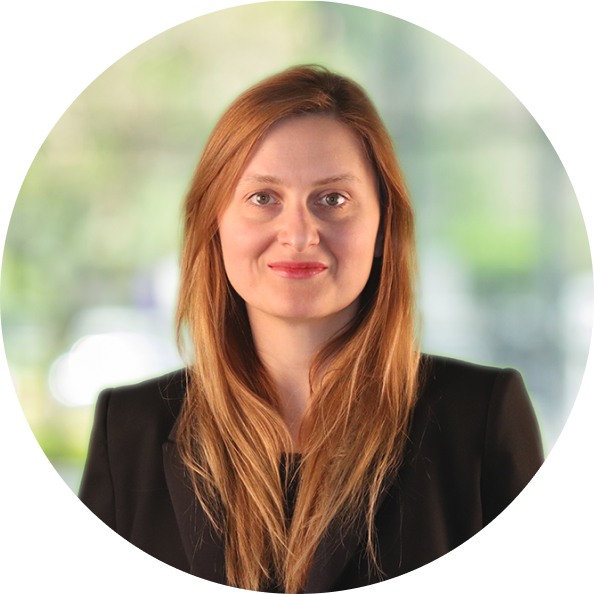
Frontiers Foundation Vice-President & FPP Committee Member
Kamila Markram, PhD
Kamila co-founded Frontiers Research Foundation and Frontiers Media with the goal of accelerating science by making published science articles open to enable healthy lives on a healthy planet. She obtained an MSc in Psychology from the Technical University Berlin and completed her Masters thesis at the Max-Planck Institute for Brain Research, Germany in 2003. She gained her PhD degree in Neuroscience at the Swiss Federal Institute for Technology (EPFL), and received an EPFL award for her thesis work on autism.
During her postdoctoral studies at the EPFL she formulated the Intense World Theory of Autism with Henry Markram. The theory turned previous theories upside down by showing that experimental evidence points most strongly to the idea that autistic symptoms are a byproduct of a super-charged brain that perceives, absorbs, learns and feels too much – causing autistic people to withdraw from an overly intense and painful world. The theory resonated beyond the research community, featuring in popular science magazines and documentaries and published as a book in 2018.
Kamila is the CEO of Frontiers, which was founded with the vision to make science open with all research papers openly and widely available to the public.
Kamila has presented the case for how Open Science can accelerate science and maximize return on investment in science at various venues, including at the National Academy of Sciences, Science Foo Camp, TEDx, the Web Summit and the Frontiers Forum held annually in Switzerland. During the pandemic the Frontiers Forum went online, where tens of thousands of scientists, business leaders and policy-makers attended the presentations, and over a million viewed each presentation on YouTube.
Kamila has built up Frontiers to become the 3rd most cited of the 20 largest academic publishers in the world with over 100,000 editors from around the world. She has been named a L’HEBDO Forum 100 personality, was a finalist for the 2016 Ernst and Young Entrepreneur Award and the 2017 EU Prize for Women Innovators.
Kamila likes to say, “We need Open Science because your future is built on science and you have the right to know what that future is going to be.”
Kamila & Henry sponsor and align the programs initiated by the Frontiers Research Foundation and build relationships with donors that support the different programs.
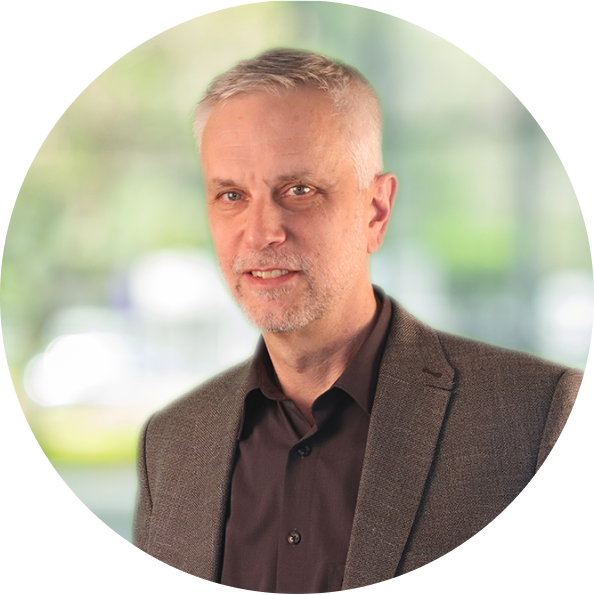
Frontiers for Young Minds Executive
Director & FRF Committee Member
Frederick Fenter, PhD
Fred is Chief Executive Editor of Frontiers and supervises the entire Frontiers journal portfolio, as well as being directly involved in all strategic projects. He served as publishing consultant during Frontiers’ launch phase in 2006–2008, rejoining in 2013 in his current role. An active advocate for Open Science, Fred frequently organizes and participates in a variety of advocacy events and roundtables.
Fred earned a PhD in Chemistry from Harvard and continued his research on atmospheric compounds at the CNRS in France and EPFL in Switzerland. He moved into academic publishing in 1997, first overseeing a portfolio of journals, book series and major reference works at Elsevier Science and then founding FontisMedia – a publishing technology startup that developed the first multi-language content-management platform for scientific journals.
Fred was also technology advisor for the launch of an institutional document repository (InfoScience) and consulted on the founding of the English-language EPFL Press.
Fred likes to say, “Science is an objective truth reached by consensus among scientists that everyone must have access to so that we can decide together the kind of future we want to build.”
As a member of the FRF executive board, Fred will maximize the scientific output and visibility of the all scientists who participate in the Frontiers Planet Prize competition.

Frontiers for Young Minds Chief
Editor & FRF Board Member
Idan Segev, PhD
Prof. Idan Segev is the David & Inez Myers Professor in Computational Neuroscience and former director of the Interdisciplinary Center for Neural Computation (ICNC) at the Hebrew University of Jerusalem, where he received a BSc in Math and a PhD in experimental and theoretical neurobiology.
Idan’s research team utilizes computational and theoretical tools to study how neurons, the elementary microchips of the brain, compute and dynamically adapt to our ever-changing environment. He has published more than 200 papers and is known as the “father of neuron simulations.”
Idan takes a keen interest in the connection between art and the brain and recently co-edited an “Artists Book” one containing original etchings by the top 10 Israeli artists and the other containing “brain-inspired poems”, prompted by an encounter with 10 Brain researchers.
Idan is the Chief Editor of Frontiers in Neuroscience (FYMs ), the largest and most cited neuroscience journal in the world. He is also the Chief Editor of Frontiers for Young Minds, inspiring, empowering, and exciting millions of children around the world about the science that is changing their world. He established a series of articles in FYMs written by Nobel Laureates that have been read by more than 50 million viewers.
Idan likes to say, “Children don’t care about our individual differences, they just want to play together and learn about the world. Let’s learn from these wise young minds and remain kids.”
As a member of the FPP Project Board, Idan will make sure the younger generations around the globe , will become aware of the Planet crisis, learn about the breakthroughs that science is making to turn their world into a better place. He will also help bring in donors who support the mission of the Frontiers Planet Prize.
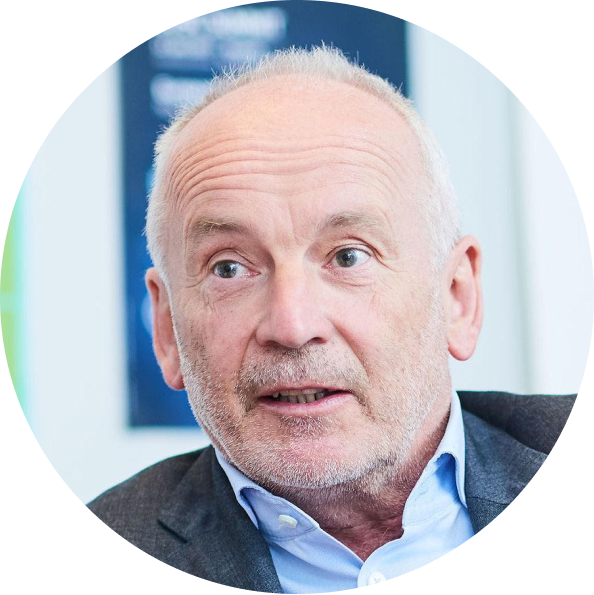
Frontiers Planet Prize Director & FRF
Committee Member
Jean-Claude Burgelman, PhD
Jean-Claude is a Professor of Open Science Policy at the Free University of Brussels (VUB) and formerly the Head of Unit for Open Science Policy at the European Commission. With a focus on the impact of digital technologies on society, he has 40 years of experience in academia and policy-making.
During his tenure at the European Commission , Professor Burgelman pioneered the development and implementation of Europe’s widely acclaimed open science policies. His drive and focus is to prove the case for open science and the enormous benefit it offers to people and planet.
Jean-Claude was the architect of the Open Science Cloud.
As Chief Editor of the Frontiers Policy Labs in Frontiers, Professor Burgelman explores novel ways how to achieve this by engaging leading voices in the policy and research space. He advocates for the notion that humankind can find solutions to global challenges by opening scientific research, while simultaneously closing the gap between research, society and policy-makers.
Jean-Claude likes to say, “Recognizing and promoting the world’s most groundbreaking science on significant planetary challenges gives us the best possible chance of making a difference to our future.“
For the Frontiers Foundation, Jean-Claude Chairs the Frontiers Planet Prize executive committee and is Director of overall operations.
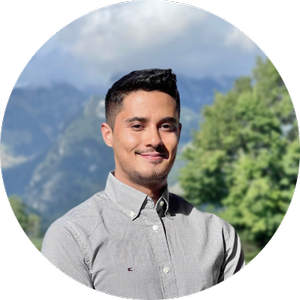
Associate Director, Frontiers
Planet Prize & FRF Committee Member
Gilbert De Gregorio, PhD
Gilbert joined Frontiers initially in 2016, supporting the Physical Sciences and Engineering journal titles, and most recently held the position of Head of Publishing Program, for the Sustainability, and Biological Sciences programs. In 2020, he contributed to the signing of the UN SDGs Publishing Compact, and launched new titles in sustainable tourism, sustainable resource management and the flagship Frontiers in Sustainability journal. In 2021, he held the position of Head of Content Acquisition at F1000 , part of the Taylor and Francis Group . Beyond scholarly publishing, Gilbert also has a range of professional experiences at global level, from innovation consulting within the life sciences, to patent examination in carbon capture and storage, within the Industrial Chemistry cluster at the European Patent Office.
Gilbert trained as an inorganic chemist, and holds a PhD in sustainable biofuel production using ionic liquids, at Imperial College , within the Chemistry and Chemical Engineering departments.
Gilbert's ambition for the Frontiers Planet Prize is ensuring scientific communities who are striving to protect our planet from entering the critical zones of any of the 9 planetary boundaries, are recognised and celebrated.
Gilbert likes to say "we have reached a crucial tipping point in how science is created, evaluated, and disseminated, and this will be key in solving humanity's greatest challenges".
As a member of the FPP Project board, Gilbert leads the institutional partnerships for the Frontiers Planet Prize.
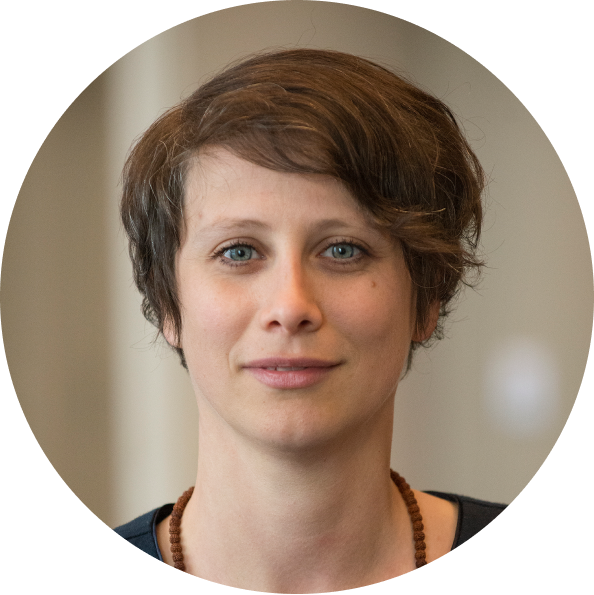
Head of Operations, Frontiers Planet
Prize & FRF Committee Member
Iulia Pascu
Iulia Pascu joined Frontiers in 2017 as Event Manager in charge of corporate events. Her previous experience includes seven years of event management at CERN , where she was in charge of conferences and outreach events.
Iulia was previously part of THE Port , a non-profit association organizing humanitarian hackathons that develop technological solutions to tackle global humanitarian challenges.
Iulia likes to say, “Joining forces to work together is the simplest way to make a difference in the world.”
As a member of the FPP Project Board, Iulia is in charge of generating, planning and coordinating the operational processes linked to the organization of the competition as well as monitoring the synergy between team members, external suppliers, and internal stakeholders. Iulia is also the point of contact for embedding the Frontiers Planet Prize Award Ceremony into the wider Frontiers Forum Live annual event.

Admin & Project Coordinator,
Frontiers Planet Prize & FRF
Committee Member
Madison Creaco
Madison Creaco joined Frontiers in January2022 as an Administrative Assistant for the Honoraria. Her previous experience includes five years as a Case Processing Immigration Officer for Immigration, Refugee, and Citizenship Canada where she was in charge of visa applications and administrative coordination. Madison also has several years of experience as a corporate event coordinator.
Madison’s favourite quote from the children’s book The Lorax, which explores the interconnected world of nature and the damage if we don't act responsibly, is “Unless someone like you cares a whole awful lot, nothing is going to get better. It’s not.”
Madison is responsible for a range of operational responsibilities that are critical to the successful implementation and management of various entities associated with the Frontiers Planet Prize. These include research institutions, national academies of science, the Jury of 100, national and international champions, external suppliers as well as the associations of which the Planet Frontiers Prize is a member.
To effectively carry out these responsibilities, Madison is responsible for managing and updating all databases related to the Prize's stakeholder community, coordinates, monitors, updates and feeds all the databases linked to the Prize's stakeholder community

Frontiers Planet Prize & FRF
Committee Member
Lily Linke
Lily Linke is the Engagement Coordinator for the Frontiers Planet Prize, dedicated to fostering global collaboration in science and sustainability. Her responsibilities include engagement with the FPP scientist network to support the development of assets, analyzing Champion impact through insights and reports, and helping to deliver a dynamic and engaging awards ceremony.
With a Master’s in Biology from the University of Bristol, her expertise lies at the intersection of conservation, ecology, and science communication. Her research explores the role of language in shaping ecological discourse, exemplified in her published paper "A Sixth Mass Extinction? How Linguistic Uncertainty Shapes Our Understanding of the Biodiversity Crisis" in Ecology and Evolution. She has contributed to a number of field research projects, investigating topics from pollinator cognition to the impact of fungicides on biodiversity.
Lily joined the Frontiers Planet Prize in February of 2025. She brings experience in sustainability consulting, having worked as an associate, and has provided engagement support for nature and health charities. Additionally, she serves on the Youth Board for the London Wildlife Trust, where she fosters connections between young conservationists and policymakers. Passionate about interdisciplinary approaches, she seeks to bridge scientific research with real-world impact, inspiring action for planetary health.
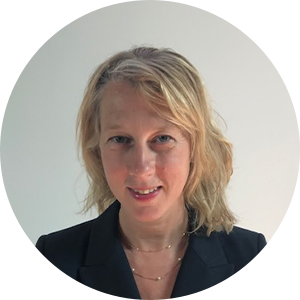
Senior Events Manager,
Frontiers Planet Prize & FRF
Committee Member
Séverine Hiard
“Turning eco-anxiety into action is not just a personal victory but a collective responsibility, empowering us to transform fear into the fuel for a sustainable future.” - Séverine Hiard
Séverine Hiard joined Frontiers in 2022 as a Senior Event Manager responsible for strategic events. Her previous experience includes 10 years as an Operations and Events Manager at the World Economic Forum, where she oversaw the coordination of the Davos Annual Meeting and delivered annual and regional events in China and Latin America. Earlier in her career, Séverine was a project manager for several years at the Salon du Chocolat in Paris, working on the international development of the project.
Séverine is in charge of the internal and external coordination of the Frontiers Planet Prize Awards Ceremony. Her role includes the logistical delivery of in-person events and the implementation of high quality and sustainability standards. She also manages day-to-day communication with the team’s stakeholders and supports social media activities.